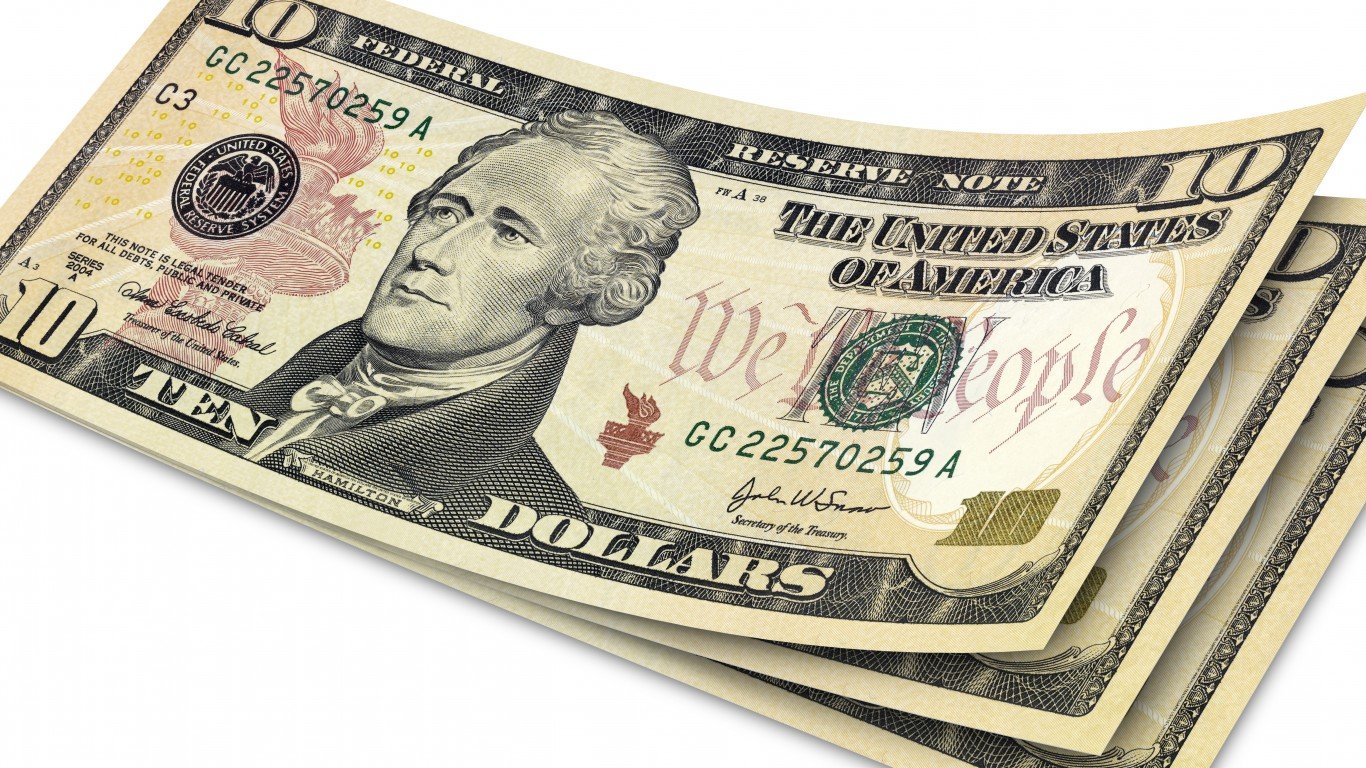

The March-quarter earnings season hits the tape this week, with five of the nation’s largest banks reporting results in the holiday-shortened week. Three Dow Jones industrial stocks are among those reporting this week, along with the world’s largest semiconductor maker and a number of other large financial institutions.
One company we missed last week reports before markets open Monday. Sigma Lithium attracts little attention from analysts. But the company’s share price has jumped more than 300% in the past 12 months and 110% since its mid-September dual listing on the Nasdaq.
Tuesday reports come from three firms in distinctly different market sectors: Albertsons, CarMax and OrganiGram.
Here are four firms set to report quarterly results before markets open on Wednesday.
Bed Bath & Beyond
Specialty retailer Bed Bath & Beyond Inc. (NASDAQ: BBBY) has had an up and down 12 months, with a steep spike last June followed by a big drop that hit bottom in October. The news last month that RC Ventures and GameStop CEO Ryan Cohen had taken a 10% stake in the company and would get three board seats lifted the stock to within 4% of its year-ago price, but the month of April has been unkind and the shares closed last Friday down 31.2% for the past 12 months.
Analysts remain cool on the stock. Of 20 brokerages covering the firm, eight have a Sell or Strong Sell ratings, while 10 have a Hold rating. At a recent price of around $19.50, the shares trade solidly above the median price target of $14.00. At the high price target of $32.00, the upside potential is 64%.
Bed Bath & Beyond is expected to post fiscal fourth-quarter revenue of $2.08 billion, which would be up about 20% sequentially but down 20.6% year over year. Earnings per share (EPS) are forecast at $0.04, up from a loss per share of $0.24 sequentially and down 90% year over year. For the full 2022 fiscal year that ended in February, current estimates call for a loss per share of $0.13, compared to a loss per share of $0.98 last year. Revenue is expected to fall by 14.5% to $7.89 billion for the fiscal year.
The stock trades at 29.7 times estimated 2023 earnings of $0.66 and 15.3 times estimated 2024 earnings of $1.28 per share. The stock’s 52-week range is $12.39 to $44.51, and the company does not pay a dividend. Total shareholder return over the past 12 months was negative 34.3%.
BlackRock
The world’s largest investment management firm, BlackRock Inc. (NYSE: BLK), had more than $10 trillion in assets under management at the end of the March quarter. At the beginning of this year, the stock had added about 18% to its share price since April of 2021. Shares have closed the past year down about 4.7%, after tumbling to a 52-week low in early March.
The company dropped another $370 million from its holdings in Chinese property junk bonds last month, part of the first reversal in fund flows from the top 20 asset management firms since last June. According to Bloomberg, more than half of the debt in an index of holders of Chinese high-yield bonds is trading at 30 cents on the dollar, down from par in the past 12 months.
Analysts remain bullish on the firm, with 11 of 14 giving the shares a Buy or Strong Buy rating and the rest rating the stock at Hold. At a share price of around $736.10, the upside potential based on a median price target of $950.00 is 29%. At the high price target of $1,035.00, the upside potential is 40.6%.
First-quarter 2022 revenue is forecast at $4.81 billion, down by about 5.9% sequentially and up 9.3% year over year. Adjusted EPS are forecast at $9.06, down 15% sequentially 16.6% higher year over year. For the full year, analysts currently forecast EPS of $40.94, up 4.5%, on sales of $20.84 billion, up 7.5%.
BlackRock stock trades at 18.0 times expected 2022 EPS, 16.0 times estimated 2023 earnings of $46.09 and 14.6 times estimated 2024 earnings of $50.41. The stock’s 52-week range is $660.15 to $973.16. BlackRock pays an annual dividend of $19.52 (yield of 2.65%). Total return to shareholders for the past 12 months was negative 6.2%.
Delta Air Lines
Since posting a 12-month high almost exactly one year ago, Delta Air Lines Inc. (NYSE: DAL) has run into stiff headwinds and bumpy air. Over the past 12 months, the stock is down 26.8%. For the past two years, the stock is down about 30% and posted a 52-week low just one month ago. Airfares have been climbing with oil prices, and Delta CEO Ed Bastian said last month that the increase could be about 10%, depending on the price of crude. In Monday’s premarket trading, crude traded down about 4.5% at around $93.80 a barrel.
The stock is a solid Buy, based on 19 of 24 analysts’ ratings of Buy or Strong Buy. The other five rate the shares at Hold. At a share price of around $36.75, the upside potential based on a median price target of $50.00 is 36%. At the high price target of $67.00, the upside potential is 82.3%.
For the first quarter, the consensus revenue forecast is $8.95 billion, down 5.5% sequentially and up 116% year over year. The airline is expected to post an adjusted loss per share of $1.26, much better than the year-ago loss of $3.55, but far from the prior quarter’s EPS of $0.22. For the full fiscal year, analysts currently anticipate EPS of $1.75 per share, compared to a year-ago loss of $4.08, on sales of $43.51 billion, up 45.5%.
The stock trades at 21.0 times estimated 2022 earnings, 6.6 times estimated 2023 earnings of $5.60 and 4.9 times estimated 2024 earnings of $7.43 per share. The stock’s 52-week range is $39.75 to $49.81. The company has suspended its dividend payment, and its total return for the past 12 months was negative 26.2%.
JPMorgan
The largest (by market cap) of the big U.S. banks, JPMorgan Chase & Co. (NYSE: JPM) has seen a share price decline of about 11.7% over the past 12 months. Bank stocks have been volatile since the beginning of the year, but the trend has definitely been down, following a spike before the Russian invasion of Ukraine. Profits at all the big banks are expected to be down sharply year over year, but rising interest rates are expected to support revenue and profits for the rest of the year. JPMorgan’s forecast will be particularly interesting for investors.
Of 26 analysts covering the stock, 13 have a Buy or Strong Buy rating on the shares while another 11 rate the stock at Hold. At a trading price of around $133.50, the upside potential based on the median price target of $163.00 is 22%. At the high price target of $200.00, the upside potential is nearly 50%.
Analysts expect first-quarter revenue to be $30.52 billion, up by about 4.8% sequentially and down 5.4% year over year. Adjusted EPS are forecast at $2.68, down 19.5% sequentially and down 41.6% year over year. For the full fiscal 2022, current estimates call for EPS of $11.13, down 27.3%, on revenue of $123.43 billion, up 1.5%.
The stock trades at 12.0 times expected 2022 EPS, 10.7 times estimated 2023 earnings of $112.44 and 9.7 times estimated 2024 earnings of $13.72. The stock’s 52-week range is $127.27 to $172.96. JPMorgan pays an annual dividend of $4.00 (yield of 3.0%). Total shareholder return for the past 12 months was negative 11.8%.
Take This Retirement Quiz To Get Matched With A Financial Advisor (Sponsored)
Take the quiz below to get matched with a financial advisor today.
Each advisor has been vetted by SmartAsset and is held to a fiduciary standard to act in your best interests.
Here’s how it works:
1. Answer SmartAsset advisor match quiz
2. Review your pre-screened matches at your leisure. Check out the
advisors’ profiles.
3. Speak with advisors at no cost to you. Have an introductory call on the phone or introduction in person and choose whom to work with in the future
Take the retirement quiz right here.
Thank you for reading! Have some feedback for us?
Contact the 24/7 Wall St. editorial team.
 24/7 Wall St.
24/7 Wall St.


